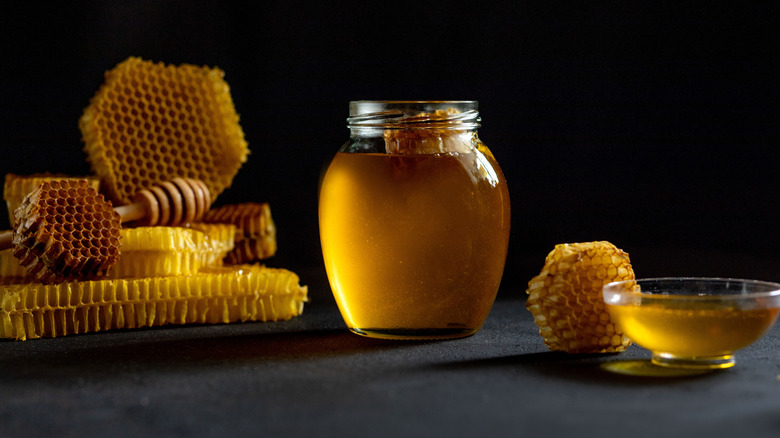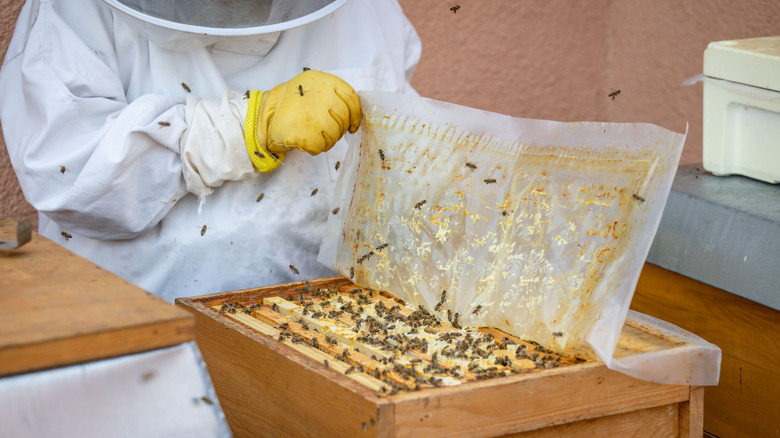Some British Honey Isn't Authentic, According To Recent Tests
A new study by the European Commission's food fraud network suggests the honey you're mixing into your tea or spreading on bread may not be as pure as you think. According to The Guardian, the Food Fraud Network, in collaboration with the European Union's anti-fraud office (Olaf) examined samples of supermarket honey and discovered that 46% — including all 10 samples imported from the UK — contained unmarked ingredients, including processed sugar syrups, making it impure and fraudulent.
According to sustainable wellness company GTCL, food adulteration is the process of lowering the quality of food by adding or swapping low-quality ingredients for economic purposes. Since honey is made by bees and not manufactured, it is somewhat scarce and difficult to farm, which often makes it a target for this kind of fraud, where processors will cut the pure honey with sugar liquids like corn or cane sugar without disclosing the blending.
In the case of the UK, investigators suspect the adulterated honey originated in China, where honey adulteration is a known problem, and was packaged or processed in the UK. Since food labels do not require every source country to be identified on processed products, consumers have no way of knowing that the inexpensive grocery store honey is likely not all it claims to be.
Harmful honey
If so much honey is tampered with, the next question is what harm comes from it? From a business standpoint, the practice is unscrupulous as it puts ethical producers against unfair competition. As The Guardian explains, using lower-quality ingredients to dilute honey allows companies to sell their product at a lower price, undercutting manufacturers who sell jars of 100% honey and defrauding customers.
Aside from the economic ramifications, diluted honey does not contain all the same benefits as the pure thing. As GTCL notes, honey has been known for centuries for its antibacterial benefits, which make it useful for treating sore throats, digestive issues, and certain skin conditions. Added sugar reduces these benefits and can lead to further health complications. Honey is often used as a healthier substitute for sugar because it is sweeter, contains trace amounts of essential vitamins, and has less impact on blood sugar. People watching their sugar intake could be adversely affected by fraudulent honey, because the added syrups could lead to increased blood sugar or weight gain. Additionally, while pure honey can last thousands of years if sealed properly, Healthline explains that adulterated honey can spoil and become unhealthy.
Currently, the EU is pressing government agencies to more stringently regulate or label honey. However, it is unclear how the UK government will address it. In the meantime, beekeepers advise consumers to purchase honey with detailed labeling or to source it directly from local beekeepers to ensure purity.

